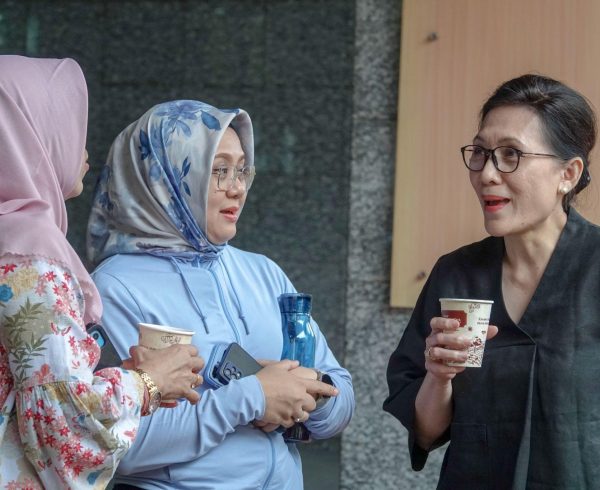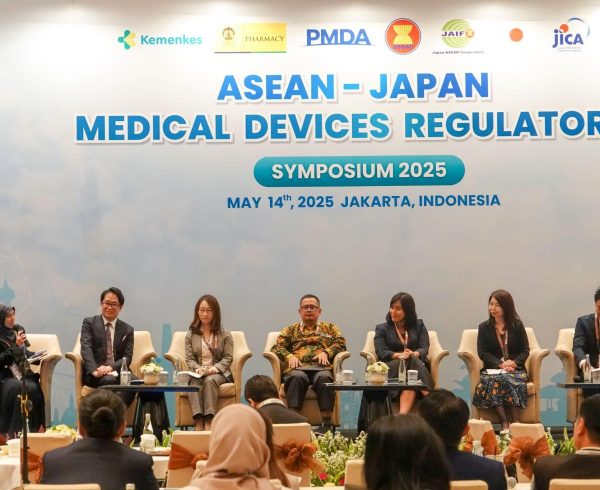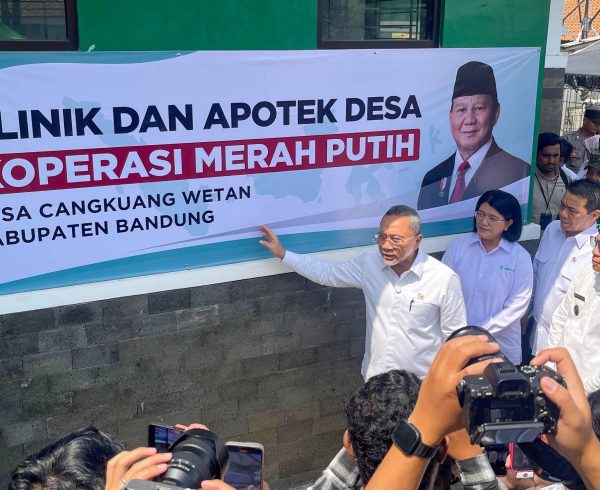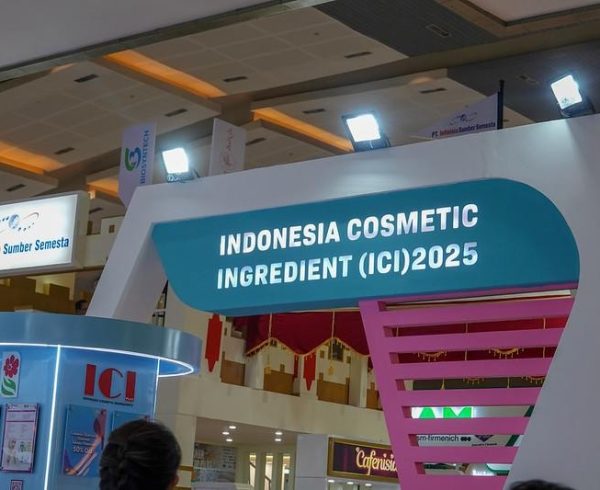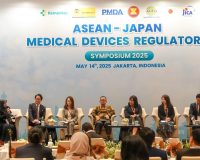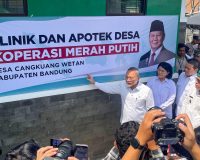Jakarta, 15 Mei 2023
Kementerian Kesehatan (Kemenkes) dan International Finance Corporation (IFC) sebagai anggota grup World Bank berkolaborasi melakukan program pengembangan sektor kesehatan Indonesia. Tujuannya meningkatkan upaya ketahanan dan pertumbuhan sektor kesehatan, sekaligus menarik investasi dan transfer teknologi untuk menggerakkan ekonomi pasca pandemi.
Sebagai langkah awal, Kemenkes dan IFC menandatangani nota kesepahaman (MoU) terkait program penjajakan peluang untuk memperkuat pengembangan proyek sektor kesehatan di Indonesia. Proyek tersebut khususnya di bidang kefarmasian, vaksin, dan teknologi kesehatan yang sejalan dengan transformasi sistem kesehatan Indonesia.

Menteri Kesehatan Budi G. Sadikin mengatakan pentingnya kemitraan antara publik dan swasta dalam membangun kesiapan menghadapi pandemi.
“Saya berharap bahwa pelajaran dari COVID-19 akan memacu kesiapsiagaan menghadapi pandemi. Semoga agenda penting ini dapat memicu industri farmasi dan alat kesehatan nasional untuk terus berkarya dan berinovasi dalam mendukung produksi obat dan alat kesehatan dalam negeri,” ujar Menkes Budi.
Setelah dicabutnya status pandemi global oleh WHO, pemerintah memfokuskan kembali sistem kesehatan dan peningkatan kapasitas produksi industri farmasi dan alat kesehatan. Hal itu bertujuan untuk memenuhi kebutuhan pelayanan kesehatan yang mudah diakses dan terjangkau.
Pada awal pandemi, sektor farmasi dan alat kesehatan Indonesia masih bergantung signifikan pada impor. Sebanyak 90% bahan baku obat masih diimpor, 88% transaksi alat kesehatan di e-katalog merupakan produk impor, serta rendahnya pendanaan penelitian dan pengembangan di bidang kesehatan di Indonesia.
Pandemi COVID-19 memberikan pembelajaran sangat penting dalam sektor kesehatan di Indonesia dan menjadi tonggak Kemenkes melakukan transformasi melalui kebijakan yang terintegrasi dari hulu sampai ke hilir. Salah satunya dengan meningkatkan ketahanan sektor farmasi dan alat kesehatan.
Berbagai upaya dilakukan untuk mewujudkan agenda transformasi, termasuk antara lain dengan menjalin koordinasi lintas sektor untuk jejaring riset, transfer teknologi dan kerja sama global untuk inovasi pengembangan bahan baku obat dan alat kesehatan produksi dalam negeri.
Besarnya kebutuhan akan investasi untuk peningkatan produksi, memperbarui teknologi, efisiensi dan menjangkau pasar global, perlu dilakukan kerja sama global yang saling mendukung dan menguntungkan. Dalam konteks ini, kemitraan Kemenkes dan IFC akan membantu mengatasi beberapa tantangan yang dihadapi oleh industri farmasi dan alat kesehatan yang pada akhirnya dapat meningkatkan daya saing industri dan daya saing nasional.

MoU ditandatangani oleh Dirjen L. Rizka Andalusia dan Kim-See Lim, Direktur Regional IFC Asia Timur dan Pasifik yang disaksikan oleh Menteri Kesehatan Budi G. Sadikin dan Managing Director IFC, Makhtar Diop.
Lebih lanjut, Dirjen Rizka menjelaskan peningkatan daya saing industri farmasi dan alat kesehatan dalam negeri merupakan salah satu langkah pemerintah untuk mencapai kemandirian dan ketahanan kesehatan nasional, yang pada akhirnya akan meningkatkan daya saing nasional bangsa Indonesia.
“Kami mengharapkan lebih banyak solidaritas dan kerja sama internasional yang dijalin sebagai upaya membangun resiliensi kefarmasian dan alat kesehatan,” ucap Dirjen Rizka.
Selanjutnya, Direktur Regional IFC untuk Asia Timur dan Pasifik Kim-See Lim mengungkapkan kemitraan yang tepat waktu ini dibangun di atas komitmen IFC dalam mendukung tekad Indonesia untuk mengubah sektor kesehatan dengan meningkatkan partisipasi sektor swasta, yang memiliki peran kunci,” katanya.
Kolaborasi ini menandai babak baru dalam program Health Public & Private Partnership, yang sangat penting untuk meningkatkan akses ke layanan kesehatan dan menciptakan lebih banyak investasi di dalam negeri.
“Kami yakin dukungan IFC akan berkontribusi pada ekosistem pelayanan kesehatan yang lebih kuat di Indonesia, memainkan peran katalisator dan memastikan ketahanan kesehatan di masa depan,” tambah Kim.

Melalui kerja sama ini, diharapkan industri farmasi dan alat kesehatan dalam negeri mampu meningkatkan kapasitas produksinya, mampu memenuhi kebutuhan dalam negeri, dan memperoleh akses seluas-luasnya terhadap peluang investasi dari luar negeri.
IFC adalah lembaga pembangunan global terbesar yang berfokus pada sektor swasta di pasar negara berkembang. IFC bekerja di lebih dari 100 negara, menggunakan modal, keahlian, dan pengaruhnya untuk menciptakan pasar dan peluang di negara berkembang.


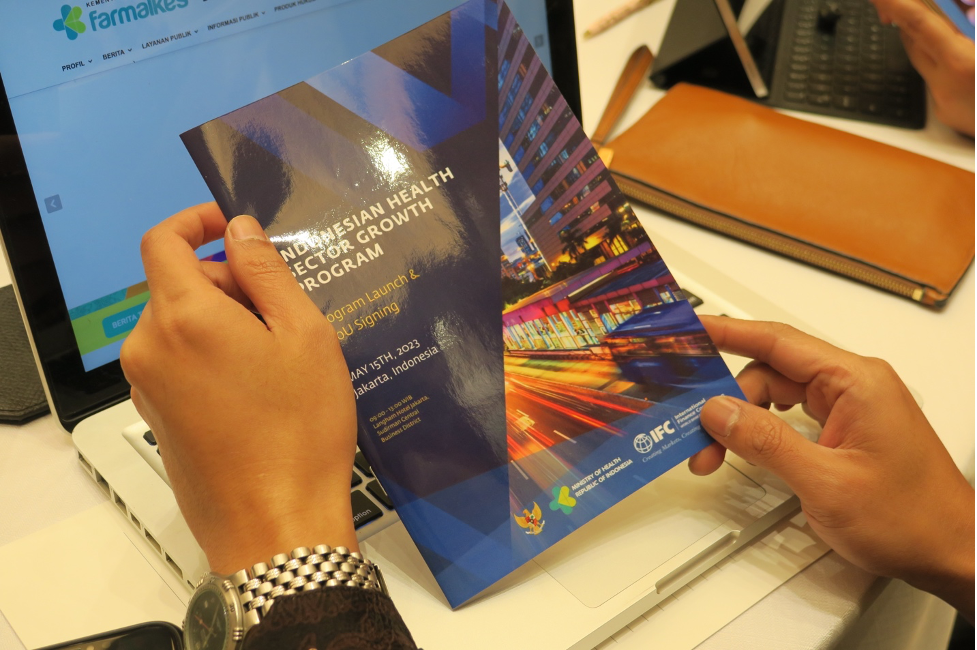 Kemenkes dan IFC menandatangani nota kesepahaman (MoU) terkait program penjajakan peluang untuk memperkuat pengembangan proyek sektor kesehatan di Indonesia.
Kemenkes dan IFC menandatangani nota kesepahaman (MoU) terkait program penjajakan peluang untuk memperkuat pengembangan proyek sektor kesehatan di Indonesia.